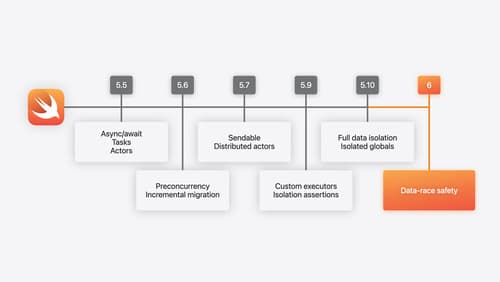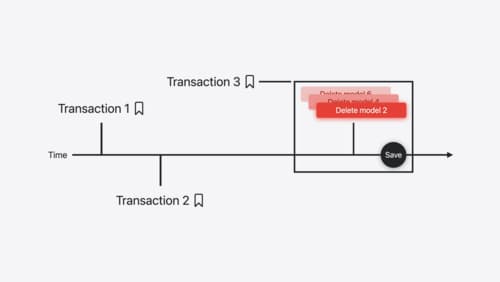NSStagedMigrationManager
Asked on 2025-05-01
1 search
It seems like you're asking about "NSStagedMigrationManager," but there is no specific mention of this in the provided context from the WWDC sessions. However, there are several sessions related to migration and data management that might be of interest:
-
Migrate your app to Swift 6: This session discusses the process of migrating apps to Swift 6, including enabling concurrency checking and ensuring data-race safety. It provides a structured approach to migration, which might be relevant if you're dealing with code migration or updates. You can find more details in the session Migrate your app to Swift 6 (03:20).
-
Create a custom data store with SwiftData: This session covers creating custom data stores with SwiftData, including features like migration, history tracking, and CloudKit sync. It might be useful if you're looking into data management and migration strategies. More information can be found in the session Create a custom data store with SwiftData (04:50).
-
Track model changes with SwiftData history: This session focuses on tracking changes in your data store over time, which can be useful for understanding data migrations and updates. You can explore this topic further in the session Track model changes with SwiftData history (05:18).
If you have specific questions about these sessions or need more detailed information, feel free to ask!

What’s new in Swift
Join us for an update on Swift. We’ll briefly go through a history of Swift over the past decade, and show you how the community has grown through workgroups, expanded the package ecosystem, and increased platform support. We’ll introduce you to a new language mode that achieves data-race safety by default, and a language subset that lets you run Swift on highly constrained systems. We’ll also explore some language updates including noncopyable types, typed throws, and improved C++ interoperability.

What’s new in SwiftData
SwiftData makes it easy to add persistence to your app with its expressive, declarative API. Learn about refinements to SwiftData, including compound uniqueness constraints, faster queries with #Index, queries in Xcode previews, and rich predicate expressions. Join us to explore how you can use all of these features to express richer models and improve performance in your app. To discover how to build a custom data store or use the history API in SwiftData, watch “Create a custom data store with SwiftData” and “Track model changes with SwiftData history”.

Track model changes with SwiftData history
Reveal the history of your model’s changes with SwiftData! Use the history API to understand when data store changes occurred, and learn how to use this information to build features like remote server sync and out-of-process change handing in your app. We’ll also cover how you can build support for the history API into a custom data store.
